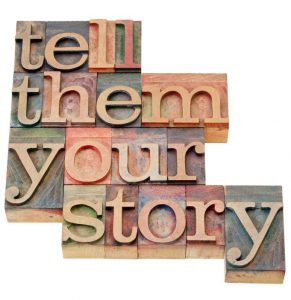Why the Superpower of Story?
The Most Powerful, Persuasive, and Memorable Career and Company Brands Are Stories Rooted in Fact
We teach you the underlying structure of effective stories – and then we help you to tell your best stories, highlighting your unique strengths, from your own experience. In fact, we can guarantee that we’ll find more transferable strengths than you ever imagined having.
- The bullet points on your resume and LinkedIn profile will get stronger overnight.
- Your cover letter will set you apart.
- You'll have talking points that make it easier to network because now you'll have confidence in why you're there and what you're saying
- Your interviewing will never be the same: you'll have a competitive advantage from now on.
- You'll see how to promote yourself without feeling (or seeming) like a braggart or a fake.
Your Inner Process
Similar in function to the Action of the STAR method, but broader and deeper.
Your Inner Process is the unique ways of thinking, feeling, and relating that lead to repeatable value for an employer:
strengths (aka talents), skills, knowledge, abilities, passions, values - and how you get into maximum-productivity Flow.
- What you did – this is what you talk about today
- Your internal decision-making process for what you did
- How you did it that way (reveals strengths)
- Why you did it that way (reveals values)
- New, previously unknown obstacles that came up – but which you also overcame
- Emotional intelligence: awareness of thoughts, feelings, and motivations of yourself and others.
- Taking initiative or assuming responsibility
- Cultivating, training, mentoring, coaching, or nurturing others
- Cultivating and leveraging relationships
- Influencing or persuading others
- Communicating, in whatever media
- Managing anxiety, adversity, or uncertainty
- Overcoming adversity
- Demonstrating resilience, grit, or perseverance
- Innovating, being entrepreneurial, thinking differently, strategically
- Leadership – vision, strategy, taking responsibility, motivating others
- Teamwork – working skillfully with others
Positive Outcome
Similar to the Results in the STAR method, but we show you how to find all the positive outcomes you've contributed to, in categories you've likely never thought of, and not just the ones you've got metrics for.
Obvious Results
What result did you attain for your organization? For the individuals in it? For yourself? For the industry?
The High-Level Skill of Developing Efficient Systems and Processes
Inventing or improving a process, especially one that becomes a best practice. Did your method become a best practice? Was it used by others later?
Third-party Validation
Use any quotes from customers, clients, colleagues, superiors – they’re like reviews on a movie poster, or testimonials – they’re powerful. Were you promoted?
Strengths Shown (or, the Moral of the Story)
Now wrap it up. Tell us what you’ve told us, briefly. In an interview, you’d call it out specifically: “This is an example of how I . . .”
Potential employers or partners care less about what you’ve done than about how and why you did it. Problem is, everyone is focusing on what they have done. They then conclude these actions are their “skills”. And then they are on the road to being completely lost.

